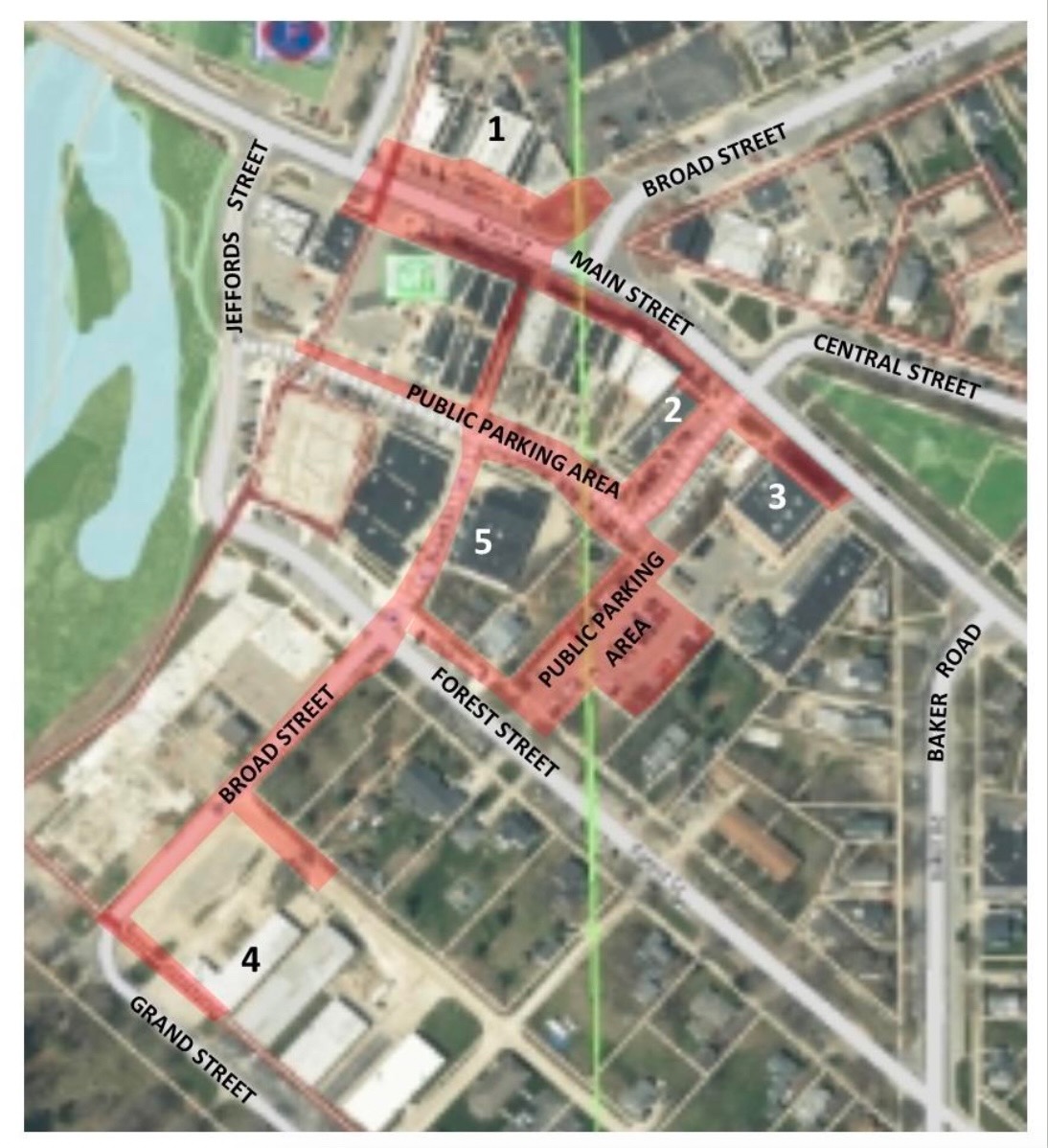At their September 18, 2023 meeting Saline City Council voted 6-1 to finalize an agreement with Washtenaw County for Police Dispatch Services. The city of Saline is one of only two municipalities in Washtenaw County that doesn’t already contract with the county for this service. Goals for this change, according to a presentation by City Manager Colleen O’Toole, include continuation of exceptional service for emergency and non-emergency callers; enhanced risk mitigation, particularly for low-frequency/high-risk events; and long-term fiscal responsibility.
The agreement covers a 15-month period that is set to begin in early April 2024. When that happens, the city will eliminate the four full-time and four part-time dispatcher positions it currently uses to provide 24/7 coverage. Washtenaw County Metro Dispatch will then take over the majority of duties previously filled by Saline’s dispatch staff. A number of remaining, non-dispatch, responsibilities will be transferred to a newly created Community Relations position. The move is estimated to provide savings of $170,000 annually.
The council voted to support the motion despite vehement opposition from residents. At least 15 citizens spoke against the idea during the public comments portion of the agenda. Reasons for opposing the motion varied but most centered on the loss of local jobs, concerns about delayed response times, and the loss of the personal touch and familiarity with the city.
One resident said, “I am very against getting rid of the dispatchers. I think that that would cause an undue delay. If someone is breaking into my house and I have to call Washtenaw County to get a policeman to come to my house, I could be dead.”
O’Toole reassured those in attendance that there was no expected difference in 911 response times. Calls made to 911 already go to Metro Dispatch, not Saline, and she says that will not change. The only change will be for calls made to Saline PD’s non-emergency number and Metro will still direct those to a Saline officer first when one is available. O’Toole also said the number of officers on duty will be the same.
Saline Police Officer Jen Schoeneich, speaking as a private citizen, shared about powerful experiences she’s had with Saline dispatchers that she feels couldn’t be replicated with Metro dispatchers. For example, last fall a non-city resident approached the Saline Police Station with her two-year-old child after escaping a physical assault by her spouse at their home. Schoeneich said, “This was the first time she got the courage to report it.”
Though the address was not Saline’s jurisdiction, the local dispatcher was prepared and invited her into the station to wait safely while Metro dispatch took more than 90 minutes to send an officer from the right jurisdiction. Having them on hand for just the occasion, the dispatcher provided snacks, juice, and crayons to the toddler and encouraged and supported the woman as she continued to wait.
Knowing the mother wouldn’t be able to provide the necessary information and also tend to the baby, the dispatcher led Officer Schoeneich and the toddler to another room to watch cartoons. This allowed the young woman to interview for over an hour. Schoeneich said, “The trooper left, went out and arrested the husband and the mother was able to return back home.”
In their remarks, all of the Councilpersons reiterated how important Saline’s dispatchers have been to the city’s safety, that all of them have done their jobs very well, and all are encouraged to apply for positions with Metro Dispatch, which has a more valuable overall compensation package than the city.
Saline Police Chief Marlene Radzik agrees that the Saline dispatchers are top notch. She said, “We have well trained and stellar dispatchers here at Saline PD. I hope they do apply for Metro-Dispatch so the connection between the officers and dispatchers remains. Metro-Dispatch would be lucky to have them.”
Still, Radzik says public safety is her main concern. “The City of Saline continues to grow, it would be irresponsible of our leadership to not look into the future and put measures in place to keep up with the growing population,” said Radzik. Contracting with Metro Dispatch is believed to be a more modern approach to large-scale emergencies–considered high-risk/low-frequency events–where precise, real-time coordination between multiple departments, agencies, and even municipalities is often necessary for a positive outcome.
Richard Edwards, a surviving victim of the shooting in Saline in August, attended the council meeting and said that after being shot he called the Saline Police Department, spoke with Lisa (a Saline dispatcher) and officers responded within minutes. He said he was later told that the alleged shooter was apprehended within six or seven minutes of ending the call and that if he had called 911 instead, it would’ve taken a lot longer. “I’m afraid to walk down the street,” said Edwards.
Though the response to the August shooting was extraordinary, it is widely understood that was partly due to the fact that emergency response training for several law enforcement agencies was happening just a few streets over, at the time. This significantly increased the availability of and proximity to emergency responders.
Councilperson Dell’Orco, who cast the sole nay vote, opposed the motion because it lacked wording specifying that the new Community Relations role would be a part of the collective bargaining agreement with the police union. Because at least one other council member voiced a similar concern, it was decided that classification of the new Community Relations position as union or non-union would be discussed at a later date and in conjunction with union leadership.






 8123 Main St Suite 200 Dexter, MI 48130
8123 Main St Suite 200 Dexter, MI 48130


